Hydrogen technologies on land and at sea. Hydrogen ships in short sea shipping
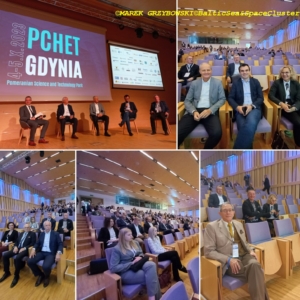
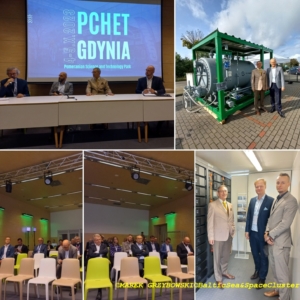
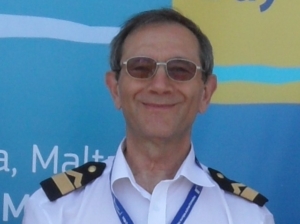 By Marek Grzybowski
By Marek Grzybowski
Hydrogen in maritime transport has prospects, even in Poland. The condition for introducing this solution into shipping is a comprehensive approach to the issue by ship operators, port authorities and companies providing port services. This is the general conclusion from the discussion during the panel “Hydrogen in maritime transport: prospects, challenges and innovations – from design to the first cruise”.
The panel took place during the 6th PCHET Gdynia hydrogen conference. Our activity determines whether in 2040 it will be possible to introduce ships with hydrogen installations on the Gdynia – Hel, Świnoujście – Szczecin or Gdańsk – Elbląg services, as well as on ships servicing ports, ships and offshore wind energy installations.

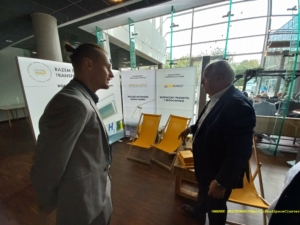
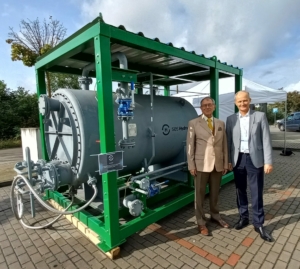
The conference was preceded by important events on this topic, which prove that we have the potential to implement hydrogen technologies in Poland. PESA is definitely leading the way. The hydrogen locomotive from Bydgoszcz met with great interest from Norwegian partners during a seminar devoted to Polish-Norwegian cooperation in the development of hydrogen technologies. The meeting took place during the Nor Shipping fair, one of the most important maritime events in Europe.
The launch of the 6-meter “Cicha Moc” boat in Szczecin at the end of August this year was spectacular. It is a recreational boat equipped with a compact hydrogen cell developed by mPower. The unit uses a zero-emission drive and the hull is made of composites.
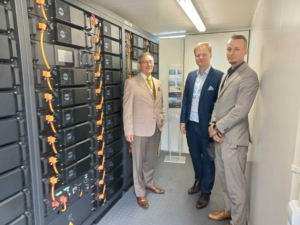
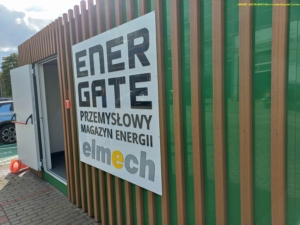
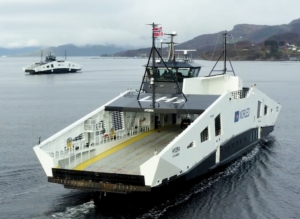
The ASE Technology Group is leading the way on the power side. The company’s portfolio includes the largest hydrogen refueling station and an energy storage facility that allows for the accumulation of green energy obtained from various sources, wind energy, solar energy or biofuel. The CRIST shipyard has a series of electric ships in its portfolio. And from an electric ship to a zero-emission hydrogen ship, the path is practically already paved.
In the case of small ferries, the hydrogen drive and its operation on the ship and on land are being tested by Norled, well known in Poland. More than a year after receiving the Ship of the Year award, Hydra bunkered hydrogen. The ferry sails west of Oslo and carries people and cars between the Norwegian ports of Hjelmeland, Nesvik and Skipavik in the fjords near Stavanger.
Hydrogen in maritime transport
During the “Hydrogen in Maritime Transport” panel, participants focused on the role and potential of hydrogen as a means to achieve IMO goals in the maritime transport sector. The panelists discussed, among others: design and shipbuilding issues as well as the operation of the first hydrogen vessels. With the development of offshore energy, the demand for hydrogen-powered units will grow – predicts Adam Wachowski, Director of the R&D Department, Energy Market Observer (ENMARO). There will be a particular need for service and people transport units, as well as bunker units in ports – emphasized Adam Ślipy, President of the Management Board, Seatech Engineering, whose portfolio includes, among others, CTV ships (Crew Transport Vessel) or a pusher with gas engines and an LNG installation.
This summer, a small unit with a hydrogen system was introduced in Szczecin – recalled Dr. Eng. Andrzej Montwiłł, President of the Management Board of the West Pomeranian Maritime Cluster. He noted that there is room to introduce hydrogen propulsion on ships, it just takes time for shipowners to make economic calculations. The most important data will be the costs of operating hydrogen-powered ships and the amount of fees for emissions of harmful substances and greenhouse gases.
Research conducted as part of the ZEV Innovation project, which is implemented by the Cluster together with the Norwegians and Croatians, shows that hydrogen-powered ships will first be introduced on short ferry connections, for ship service in sea ports and for maintenance services provided to operators of stationary and floating wind farms , offshore oil & gas, fish farms – said the panel leader, Dr. Hab. engineer Marek Grzybowski, president of the board of the Baltic Maritime and Space Cluster.
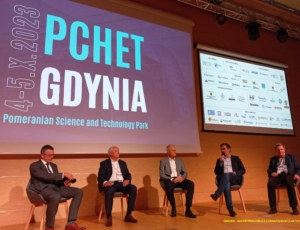
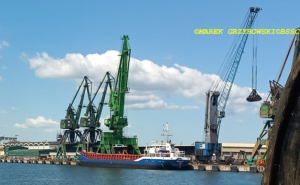
It’s time for hydrogen-powered ships
A hydrogen valley is already operating in Pomerania. The Port of Gdynia Authority has actively participated in promoting hydrogen technologies in transhipment terminals. Pomeranian cities are planning to introduce hydrogen bus transport. Such actions were taken, among others: in Tczew, Gdańsk, Gdynia and Wejherowo – mentioned Leszek Bonna, Deputy Marshal of the Pomeranian Voivodeship in his opening speech at PCHET Gdynia.
– The local government of the Pomeranian Voivodeship will support all activities related to the green transformation and support cooperation between the local government and industry and universities to jointly improve the quality of life of the region’s inhabitants – emphasized Bonna.
Damian Mucha, president of the Pomeranian Regional Chamber of Commerce, said that “another PCHET conference proves that local government, business and science appreciate the importance of developing hydrogen technologies.” In his opinion, “entrepreneurs from Pomerania want our region to actively participate in the decarbonization of the environment and that is why they are involved in creating a hydrogen system in Pomerania.
– The Pomeranian Voivodeship has actively participated in activities related to the preparation of human resources for companies involved in the construction and operation of offshore wind farms. The EduOffshoreWind fair, organized in March this year, served to stimulate interest in the new activity. Next year, the next fair will be expanded to include hydrogen technologies, announced Marshal Leszek Bonna.
Important strategic issues were discussed during the panel entitled: “Directions of development of the hydrogen economy in the Pomeranian Voivodeship – Pomeranian Voivodeship on light gas.” Its moderator was Stanisław Szultka, director of the Department of Economic Development of the Pomeranian Voivodeship Marshal’s Office. It was attended by, among others: Andrzej Jeżewski, president of PROMETPLAST, Sławomir Halbryt – president of the Management Board of SESCOM and SES HYDROGEN, prof. Piotr Stankiewicz from the Institute of Sociology of the Nicolaus Copernicus University in Toruń and Czesław Kordel, president of MZK Wejherowo.
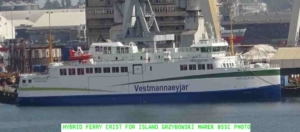
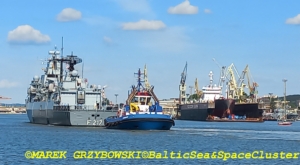
Development plans and infrastructure needed
The panelists emphasized the dynamic development of the hydrogen industry and its important role in the energy transformation. President Kordel emphasized that spatial development plans must now include refueling stations and other infrastructure related to the use of hydrogen. It may turn out that changing the spatial plan may be a key limitation in introducing high-pressure installations into the urban tissue.
The problem of infrastructure for zero-emission ships concerns large and small seaports, which today are not prepared to handle hydrogen ships and devices on a large scale. An important conclusion emerges from the panel introducing the conference and the “maritime” panel. If we want to actively participate in the decarbonization of maritime transport and ports, we must plan critical infrastructure today that will ensure the production, storage and bunkering of ships or the refueling of port facilities using hydrogen.
The sin of omission may have a negative impact not only on the energy transformation process but may also result in a weakening of the competitive position of our ports and companies providing short-distance transport services. The expansion of hydrogen infrastructure in large and small ports and their surroundings (refineries, fuel terminals) may be an opportunity to introduce hydrogen-powered ships over short distances and in ports. We can imagine that even in 2040 it will be possible to introduce ships with hydrogen installations to the Gdynia-Hel, Świnoujście-Szczecin or Gdańsk-Elbląg connections, as well as ships servicing offshore wind energy installations.
An extensive hydrogen infrastructure is a necessary and indispensable condition so that the activity of the Pomeranian community does not end with the introduction of a few or a dozen hydrogen buses purchased and operated with public funds. The Pomeranian Voivodeship is very active in the development of hydrogen technologies, so it is worth using our social, business and scientific activities.
The PCHET Gdynia conference took place on October 4 and 5 this year. in the Pomeranian Science and Technology Park. The conference was organized by the team creating the Hydrogen Technologies Cluster with the support of the Pomeranian Regional Chamber of Commerce.
